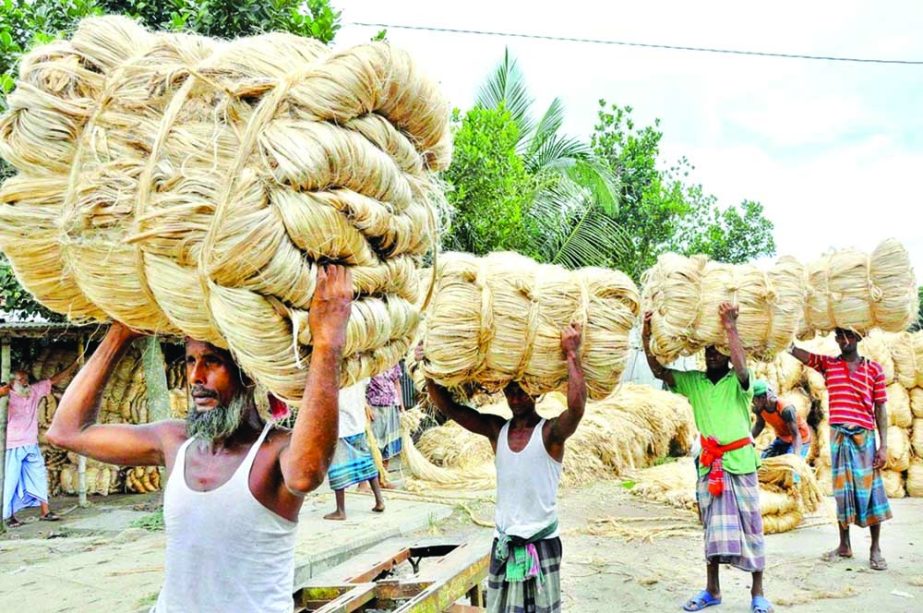
Business Desk :
Stakeholders of the jute sector have urged the government to raise the issue of anti-dumping duty (ADD) to the World Trade Organization (WTO) as India has turned a blind eye to Bangladesh’s request to lift the ban on jute goods in the last five years, sources said
In January 2017, the Directorate General of Trade Remedies (DGTR) of India imposed ADD on Bangladesh’s jute yarns, hessians and sacking bags, ranging between $19.30 to $351.72 per ton for a period of five years.
The sunset clause is supposed to remain effective till January 31, 2022. Unless the Indian government extends the period of the clause, it will help Bangladesh boost the export of jute goods to the neighbouring country. But India started sunset review of import of Bangladesh jute products on July 9, 2021, to enhance the ADD for another five years.
Chairman of Bangladesh Jute Mills Association (BJMA) Mohammad Mahbubur Rahman Patwari has urged the government to raise the issue before the World Trade Organization (WTO) to get a better result.
Expressing deep concern at the prevailing situation, the BJMA president said: “The ADD has hit the jute industry of Bangladesh, as export volume to India dropped 70%. A good number of Bangladesh jute mills have cut their production and a number of mills have closed down in the meantime.”
“The association believes if the Bangladesh government lodges an appeal to the WTO before completion of the sunset review, Bangladesh can get a better result. But an effective action is yet to be seen,” the president lamented.
According to the Export Promotion Bureau, the country exported $1,096 million worth of goods to India in the 2019-2020 fiscal year. Of the amount, $157 million came from jute and jute products. Around 12% of Bangladesh’s jute products are exported to India.

